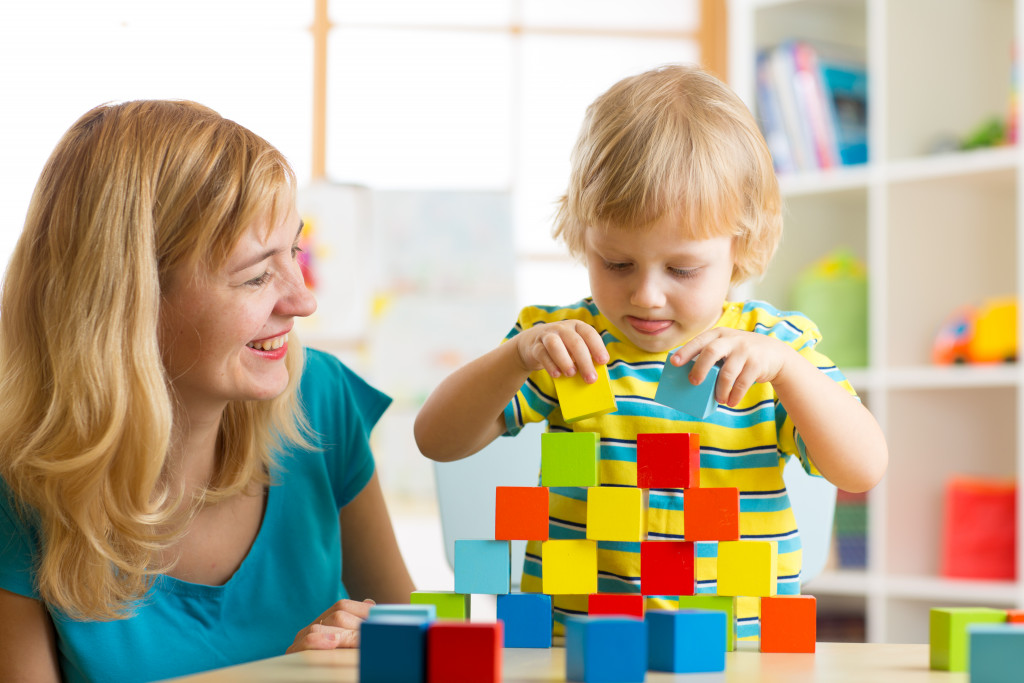- Establish a routine at home to prepare them for school life.
- Encourage independence by teaching them essential life skills.
- Focus on social skills by taking your child on playdates and enrolling them in extracurricular activities.
- Introduce pre-literacy skills by reading books, singing nursery rhymes, and using different reading materials.
- Foster a love for learning by providing stimulating activities.
Starting school can be a significant event in a child’s life, and as a parent, you will want to do everything you can to make the transition as smooth as possible. While schools will do their part in providing your child with a nurturing environment that encourages learning, there are things that you can do at home to ensure that your toddler is ready for formal schooling. Here are some tips on best preparing your toddler for formal education.
Create a routine
Routine is an essential aspect of a child’s day, and it can help them settle into school life quickly. Establishing a routine at home that follows a similar pattern to what they can expect at school ensures that your child knows what to expect each day.
Your routine must include reading, indoor and outdoor play, interactive games, and creative activities. The routine doesn’t have to be complex, but it should be a consistent part of your child’s day.
Encourage independence
Independence is another critical aspect of preparing your child for formal schooling. Children who care for themselves are more confident and independent, making them better learners. Encourage your toddler to dress themselves, brush their teeth, and learn basic hygiene practices.
Also, teach them how to tidy up after themselves, use cutlery properly, and recognize their belongings. Reinforcing these essential life skills will greatly benefit your child when they start school.
Focus on social skills

Social skills are essential to your child’s growth, and fostering them early is important. Encouraging your toddler to interact with other kids is beneficial as it teaches them about sharing, taking turns, and basic communication skills.
Take your child on playdates, enroll them in playgroups, and encourage them to participate in extracurricular activities. These activities help your child develop social skills and build relationships essential for school life.
Teach your child pre-literacy skills
Pre-literacy skills are the foundation of reading, writing, and spoken language and, consequently, are integral to your child’s success in formal schooling. Pre-literacy skills include recognizing letters, rhyming words, identifying sounds, and posting them.
You can introduce these skills at home by reading stories together, singing nursery rhymes, and using different reading materials to stimulate your child’s pre-literacy skills. Encouraging your child’s curiosity in these areas is an excellent way to prepare them for formal schooling.
Foster a love for learning
Fostering a love for learning is essential for your child’s success in formal schooling. Instilling a passion for learning in your child may take some work, but it’s worth it. You can encourage learning at home by providing them with stimulating activities, such as visiting museums, reading books about different subjects, and watching educational videos. When your child associates learning with fun, they’re more likely to be excited about school.
Enroll in a Playschool
Play-based learning schools are an excellent way to prepare your child for formal schooling. They provide children with a foundation to build upon as they progress through their academic careers while having fun and learning valuable life skills. Here are the benefits:
1. Social Interaction
Playschools are a fantastic way for your child to interact with other children their age. They learn to socialize and make friends, which is essential for their development. Social interaction at such a young age can lead to a more confident and outgoing child, which can translate into success in their later years.
2. Early Learning

Playschools provide a structured learning environment that allows children to learn essential concepts. Children are presented with learning activities that promote creativity, problem-solving skills, and cognitive development. Children learn at their own pace, and the teachers ensure each child gets the attention they need.
3. Emotional Development
Children in playschools learn to manage their emotions and feelings. They learn to express themselves appropriately and resolve conflicts healthily. Children who receive emotional support from an early age tend to have better mental health as they grow older.
4. Boost Confidence
Playschools can help boost your child’s confidence. Children get to showcase their skills and talents in a safe and supportive environment. This can help children believe in themselves, so they tend to have a positive outlook on life.
Final Thoughts
Preparing your toddler for formal schooling requires a combined effort from parents and schools. While schools will do their part, parents must also do their part by creating routines, developing independence, fostering social skills, introducing pre-literacy skills, and encouraging a love for learning. By implementing these tips, you can prepare your toddler for formal schooling, giving them the best chance for success in their academic journey.

